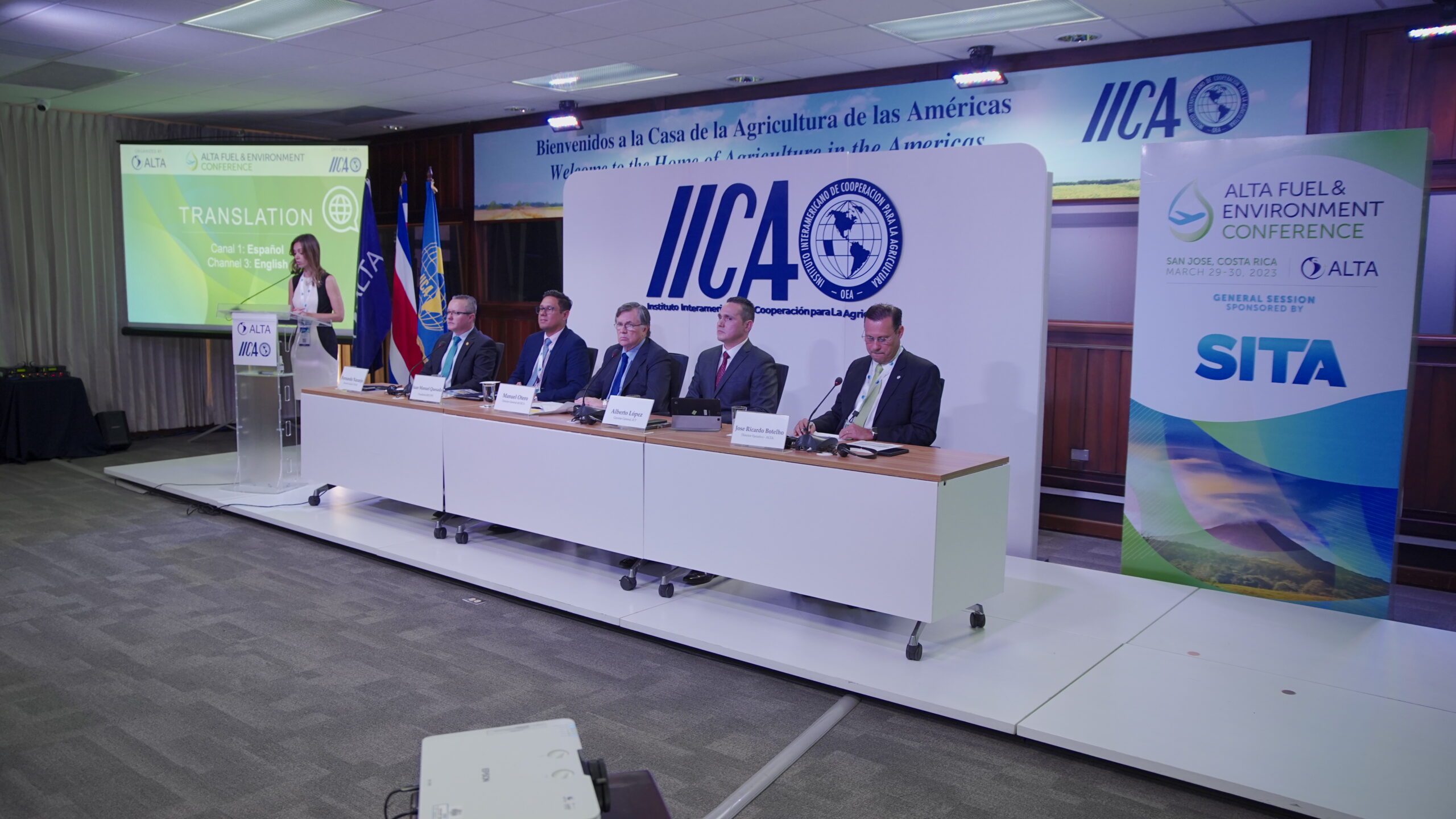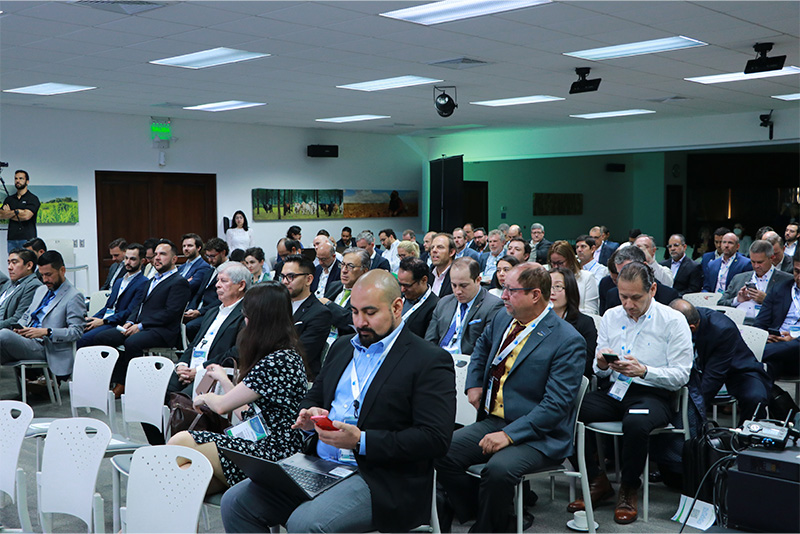The region has sufficient inventory of biomass, vegetable oils, animal fats, sugars, starches, alcohols and lignocellulosic materials for the agriculture sector to be a major supplier of biofuels for the aviation industry, affirmed IICA’s Director General.

San José, 30 March 2023 (IICA). Over one hundred authorities, specialists and leaders of the air transport industry, gathered at the headquarters of the Inter-American Institute for Cooperation on Agriculture (IICA) in Costa Rica, agreed in their consideration of Latin America and the Caribbean as a key region and of its agriculture sector as a potential leader in the development of sustainable aviation fuels.
The Fuels and Environment Conference of the Latin American and Caribbean Air Transport Association (ALTA, for its acronym in Spanish) brought together public- and private-sector decision makers who are also participating in the Pan-American Liquid Biofuels Summit organized by IICA.
At the conference, Manuel Otero, Director General of IICA, expressed that the agriculture sector of the Americas has a huge opportunity to produce sustainable biofuels to help meet the challenge of supplying clean energies to the aviation industry.
“Our continent has sufficient vegetable oils, animal fats, sugars, starches, alcohols and lignocellulosic materials—a large amount of biomass that can be transformed into sustainable aviation fuels”, he affirmed.
“IICA is ready to build bridges with the region’s aviation industry and to drive innovation in this area, where the agriculture of the Americas holds huge potential”, added Otero.
José Ricardo Botelho, Executive Director and CEO of ALTA, also participated in the conference in Costa Rica, stating that for the sake of competitiveness and more so now than ever, it is urgent for the aviation industry to be carbon neutral by 2050 and to collaborate to mitigating and adapting to climate change.
“The aviation industry’s climate change agenda must be the same as that of the Governments in the region, and so all affected sectors must be involved in defining public-private policies”, added Botelho, who also referred to the need to improve the sustainability of the aviation industry through sustainable fuels and cost reduction efforts.

The Conference and Pan-American Summit is a first step toward building an alliance in the Americas to drive the development of sustainable aviation fuels, a valuable alternative for decarbonizing the environment.
“To achieve this goal, the air transport industry is committing to a number of measures, from developing new technologies and improving infrastructure and operations to capturing and offsetting carbon”, stated Agustín Torroba, IICA Biofuels Expert.
“Biofuels are an answer to these needs; there are already companies that are building factories to process them, just as there are other companies that are buying volumes from factories that have yet to be built; this is how the market is moving today”, he added.
IICA’s specialist reported that in the Americas, the industry can produce between 115 and 120 million cubic meters of ethanol and has factories to produce the raw materials necessary for biofuel.
Costa Rican authorities from the fuel, aviation and tourism industries also participated in the conference organized by ALTA and IICA.
Juan Manuel Quesada, Executive President of the Costa Rican Oil Refinery (RECOPE), stated that in the medium term, the aviation sector will face a paradigm shift and the diversification of the energy matrix that will necessitate the development and adoption of new energy sources.
He therefore believes that it is imperative for governments and the private sector of the countries of the Americas to join forces to develop public policies that incentivize an energy transition.
For his part, Fernando Naranjo, Director of the General Directorate of Civil Aviation (DGAC), expressed that the aviation industry must seek solutions that enable progress to be made on an international framework for offsetting and reducing carbon dioxide emissions.
“This industry promotes the economy, connectivity, trade and many other activities that benefit the countries in the region; that is why it is necessary to find a way to mitigate and offset for future generations”, affirmed Naranjo.
Along the same line, Alberto López, General Manager of the Costa Rican Tourism Institute (ICT), asserted that Costa Rica’s sustainable tourism industry is the result of public-private policies that have been applied systematically for many years.
The participants at ALTA’s Fuels and Environment Conference discussed topics related to the sector’s legal framework; the production, import and trade of sustainable aviation fuels; sustainable airports; and carbon offsetting mechanisms for airline passengers.
More information:
Institutional Communication Division.
comunicacion.institucional@iica.int











